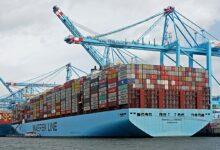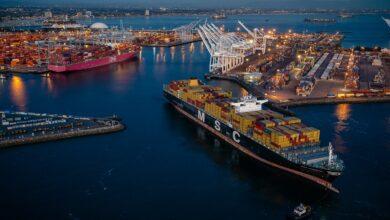
Nigeria Economy Today: Outlook, Facts, Analysis, and Economic Potentials
Nigeria economy today is in recession, and consumer price index which measures inflation, stands at 16.10% as at June 2017 as per figures from the Nigeria Bureau of Statistics (NBS).
The Government said the economic slump was due to old and inherent structural and economic factors such as continuous reliance on a single commodity – crude oil, lack of savings, leakage of revenue, corruption and wasteful spending in the past.
👉 Relocate to Canada Today!
Live, Study and Work in Canada. No Payment is Required! Hurry Now click here to Apply >> Immigrate to CanadaThis quotation by Muhammadu Buhari President, Commander-in-Chief of the Armed Forces, Federal Republic of Nigeria who assumed office in May 2015, sums up the state of the economy.
“Our ‘Change Agenda’, to which we remain committed, rests on the tripod of improving security, tackling corruption, and revitalizing the national economy”
This article will trace history of economic problems in Nigeria and analyze it to show that despite the crippling recession, there are economic potentials inherent in the problems.
The aim is to open your eyes to the huge potentials that these problems portend for discerning investors willing to take action, to give solutions for many problems in the Nigerian economy.
Facts of Nigeria Economic Problem
To give lasting solutions for the recession in Nigeria economy today, you must visit the past to trace the cause.
Nigeria could become a major player in the global economy because of its human and rich natural resources. However, the nation has not fully used its potentials till date.
Available records show that in 1960, Agriculture contributed 54.7 % to Gross Domestic Product (GDP). After Nigeria gained independence, focus shifted from Agriculture to crude oil and gas. Uncontrolled consumption and high oil prices made the economy to grow.
👉 Relocate to Canada Today!
Live, Study and Work in Canada. No Payment is Required! Hurry Now click here to Apply >> Immigrate to CanadaTill date, Nigeria economy depends largely on importation, consumes what it does not produce and rely solely on the sale of one product, crude oil.
Over 95% of foreign exchange earnings come from export of crude oil and less than 1 % from the manufacturing sector. Fast forward to 2017 very little has changed.
The general economy suffered poor infrastructure, corruption, misuse of public money and lack of jobs, despite the growth which hovered around 4.8% per annum fueled by high oil price and consumption.
This continued from June 2014 to June 2016 when price of crude oil fell to an all time low of US$28 a barrel and failure to diversify the economy led to a full-scale recession.
Sabotage of oil export terminals in the Niger delta, and inability to stop the economy from contracting, corruption, leakages and lack of savings to absorb the shock, and inefficient spending by past government were factors that contributed to Nigeria’s economic woes.
Since May 2015 the APC led government has put in place policies that could stem the tide of economic decline by fighting corruption, improving security and rebuilding the economy.
In 2016 the Strategic Implementation Plan (SIP) for 2016 budget of change was a short-term measure to curb economic decline.
The Need for Economic Recovery and Growth Plan (ERGP)
After the global economic meltdown in 2008, the nation had a steady growth of over 10 years.
Internal economic problems put the country into recession and led to the creation of a plan to solve Nigeria economic problem.
Between 2014 and 2016, oil price came down from US$ 114 to US $28 per barrel of crude causing a big negative growth for the economy. After a brief recovery, Nigeria fell back into recession due to sharp drop of oil price and poor export revenue.
The government relies on crude oil export earnings to run the economy – save in its foreign reserve, public revenue, and foreign exchange for importing raw materials for manufacturing.
At this time, the economy stopped growing, and could not generate jobs or reduce poverty.
From 2005 to 2015 Nigeria, GDP grew at an average of 6.3%. The economy entered into recession in 2016 contracting by 0.36%, 2.1% and 2.2% in the first ,second and third quarters.
The forecast growth for 2016 was -1.54%. Inflation increased from 9.5% in December 2015 to18.5% in November 2016 due to these factors- currency depreciation, higher energy prices, and high cost of inputs. The gross domestic investment (GDI) ratio of 13 -14 % showed the economy was more consumption than investment minded.
Nigeria economy relies heavily on the oil and gas sector though it accounts for just 10% of Nigeria GDP and represents 94% of export earnings and 62 % of Federal and State Government revenues in 2011-2015.
Foreign Reserve fell from a high of US$53 billion in 2008 to US$ 32 billion in January 2015 and then to US$ 25 billion in November 2016. This led to naira depreciating to almost more than half of its value against the dollar.
Foreign Direct Investment fell from a high of US$8.9 billion in 2011 to US$3.1 billion in 2015.
NBS’s report, show that capital importation into the country rose from US$1.04 billion in Q2 2016 to US$1.82 billion in Q3 2016 representing 75% increase in Foreign
Direct Investment (FDI), Foreign Portfolio Investment (FPI) and other investments from Q2 to Q3 2016.
On a yearly basis, total capital into the country declined by 46.9% from US$9.6 billion in 2015 to US$5.1billion in 2016.
Federal Government deficit increased from N1.2 trillion in 2013 to N1.4 trillion in 2015 and to estimated N2.2 trillion in 2016, and 40% of states running deficit of more than 30% of their revenue raising crucial questions about the nation’s financial stability.
14 Barriers to Economic Growth in Nigeria
Nigeria economy today suffer from diverse problems let us look at a few that hinder economic growth.
1. Poverty was common as about 61% of the population lived under US$1 or less a day.
2. Health care systems were bad and Malnutrition caused almost 55% of infant mortality rate which is fourth to the highest in the world.
3. In Nigeria net enrolment rate into primary school is 54% and ten million children of school age fail to go to school.
4. Unemployment among youths is high. At June 2016, Nigeria had 17.6 million unemployed and underemployed youth or 22% of the labor force.
5. Word Bank’s 2017 Doing Business Index placed Nigeria 169 out of 190 countries.
6. Due to inability of Nigeria to enforce contracts, you cannot move goods freely or trade across the border easily, and paying tax is hard. These problems erode investors’ confidence and cut revenue from tax.
7. Poor Infrastructure such as lack of constant power supply and transportation hinder businesses in Nigeria from doing well.
8. Lack of maintenance means only one-third of available power capacity is useable while quality and length of road is not enough.
9. Most manufacturers were unable to get foreign exchange because it was not available. Inflation rose to 18.5% from 18.3% in Oct. 2016.
10. Inflation rate rose steadily in 2016 and GDP declined year on year with 2.4% and in Q3, 2016 there was negative growth.
11. Bombing of Oil facilities and Kidnapping of expatriates were common in the Niger Delta. Currently this has reduced.
12. Kidnap of children and insecurity in the land is worrisome to all stakeholders.
13. Nigeria economy today suffers from terrorism and insurgency.
14. Boko Haram still attack innocent people in the North East and normal economic activities are yet to fully begin there.
2017 Budget of Recovery and Growth (PROPOSAL)
The 2017 Budget is “Budget of Recovery and Growth”. It had a total sum of N7.29 trillion estimate which is higher than 2016 budget of N6.07 trillion by 20.1%.
Major micro economic assumptions for its preparation of 2017 budget are as follows.
Oil price of US$42.5 per barrel (the National Assembly reviewed the price to US$44.5 per barrel), oil production output of 2.2 million barrels per day.
Inflation rate of 12.92%, GDP growth rate of 2.5%, and exchange rate of N305 to US$1 are other forecasts.
It had a projected revenue of N4.94 trillion and fiscal deficit of N2.36 trillion (or 2.18% of GDP) in contrast to 2016 figures of N2.22 trillion (or 2.16% of GDP).
The budget allocated N2.24 trillion for capital expenditure, representing 30.7% of Total Budget. This expenditure should pull the economy out of recession.
N2.9 trillion was the allocation for Salaries and pensions. This is higher than N2 trillion approved for capital expenditure. From history, Nigeria’s recurrent expenditure has always been higher than its capital expenditure.
Intention to borrow more money in the New Year reflects in the increase of Debt servicing from N1.48 trillion in 2016 to N1.66 trillion in 2017.
Government projected to pay for the fiscal deficit by borrowing external debts of N1.07 trillion and N1.25 trillion from domestic market in the country.
The budget for the Ministry of Power, Works and Housing got the highest capital allocation of N529 billion – representing 23.6% of total capital spending in the budget. This expenditure shows governments intention to develop infrastructure in the country.
Summary of Key Items in 2017 Approved Budget
- Total Expenditure – N7.44 trillion
- Total Revenue – N5.08 trillion
- Estimated fiscal Deficit – N2.36 trillion (Domestic borrowings of N1.25 trillion and external debts of N1.07 trillion will fund this deficit).
- Capital Expenditure – N2 trillion
- Highest Capital Allocation – N500 billion to Ministry of Power, Works and Housing.
- Special Economic Zone (SEZ) – N46 billion for 6 geopolitical zones.
- Oil production – 2.2 million barrels per day
- Oil Price US$42.5 per barrel
- Exchange Rate – N305 to $1
- Gross Domestic Rate – 2.5 percent
- Inflation Rate – 12.92 percent
The Difference between Proposed Budget 2017 and Approved 2017 Budget
The following are the points to note between the proposed budget 2017 and the Final 2017 Budget signed into Law.
- The proposed 2017 Budget had a total sum of N7.29 trillion submitted by the executive. However, the National Assembly increased it to N7.44 trillion. The difference is about N160 billion.
- The Budget Proposal had projected revenue of N4.94 trillion. This figure changed in the Appropriation Act to the sum of N5.08 trillion.
- The proposed budget allocated N2.24 trillion for capital expenditure. The approved figure in the Appropriation Act is N2 trillion.
- The budget for the Ministry of Power, Works and Housing got the highest capital allocation of N529 billion. The House of Assembly cut it to 500 billion in the Appropriation Act.
Key Monetary Policy Rates (Benchmark) in Use Today
- Monetary Policy Rate – 14 percent as at July 25, 2017
- Cash Reserve Rate – 22.5 percent
- Liquidity Rate – 30 percent
- Lending Rate – 17.58 percent
- Foreign Reserve – US$30.740 billion
Analysis of the Global and Domestic Economic Environment
The global economy is improving though, imposing duties on imports to protect domestic industries and immigration weaknesses in the financial markets are risks to global economic stability.
While Nigeria economy today is on a moderate recovery mode with a positive short to medium – term outlook based on fiscal stimulus and a stable naira exchange rate, inflation is heading down due to the current position of the monetary policy.
There is slow but steady decline of inflation pressures in the domestic economy which is reflecting in the constant improvements in the exchange rate of the naira across all parts of the foreign exchange market, and the improved inflow of investment into the country creating liquidity in the stock market in the recent months.
Despite improved outlook for growth, the last Monetary Policy Committee meeting that held on 25 July, 2017 retained the monetary policy rate (i.e. the rate at which Central bank lends money to banks having temporary liquidity problem) at 14 percent; Cash Reserve Ratio at 22.5 per cent; Liquidity Ratio at 30.00 per cent; and the Asymmetric corridor at +200 and -500 basis points around the MPR.
The recent increase of oil prices from US$42.5 per barrel to above US$50 per barrel, will improve the foreign exchange earnings of the government and create the necessary incentive for increase in economic activities and make it possible to successfully carry out the 2017 budget.
Improved earnings will affect all economic indicators such as gross domestic product, inflation, unemployment, interest rates, capital inflows and exchange rates, etc.
The latest 2017 economic projection by the IMF and Fitch, paint a picture of an economy that is on a growth path. IMF expects GDP growth of 0.6% and Fitch 2.6% respectively.
If the conditions keep improving, we are hopeful that the economy will recover and grow above 1%. In June 2017, Nigeria consumer price index which measures inflation increased to 16.10%, down 0.15% from 16.25 % in May 2017.
There is moderation of inflation in 2017 due to foreign exchange availability. We expect the liquidity in foreign exchange to bring the inflation rate further down before the year come to an end.
Capital Importation in Q1 2017 is US$908.27 million is smaller than capital imported in the previous quarter and second lowest since 2007.
Foreign Exchange Policy
In Nigeria Economy today, the Foreign Exchange (FX) market is not consistent. In fact there are six different rates for different markets due to the foreign exchange policy in operation.
A stable FX market is necessary for having a successful market. The CBN began with the flexible exchange rate policy in 2016 in other to create a credible market that cuts off multiple exchange rates.
The policy has reduced sharp practices in made FX readily available for manufacturers and those that need it when they need it.
In addition, there are weekly interventions by CBN to defend the naira and give confidence to foreign investors who had fears of inability to repatriate their money when they wish to.
This policy has helped the currency to stabilize up to an extent and close the gap between the official market and the parallel market in the streets.
Interest Rates
Fixed income yields went up extensively over the last year due to tightening of monetary policy by CBN to keep price stable and support foreign currency portfolio investment inflows.
Internally Generated Revenue
Internally Generated Revenue figures from taxes in 2016 from Nigeria Bureau of Statistics show that Lagos generated more revenue than other states. It generated N302.42 billion followed by Rivers state with N85.92 billion.
Other states did not generate enough revenues, which show that they cannot stand on their own without Federal Revenue allocation to them.
For example, Federal government disbursed N1.4 trillion to state governments as Salary Bail-out, debt restructuring and conditional support facilities from June 2015 to June 2016 due to most States inability to pay its staffs salaries.
These states should improve Internally Generated Revenue to cut over dependence on Federal Government.
Foreign Borrowing
The federal government, issuance of $1 Billion Eurobond in February 2017 was a huge success as there was oversubscription to the tune of US$7.8 billion. This shows government determination to improve infrastructure and boost the economy.
Outlook
Recently, the government has contracted the service of Asset Tracing Experts to investigate the records of tax payment of 150 companies and some people. This will help the government close loopholes of tax evasion by people, and companies and generate more revenue.
The government should execute the capital part of 2017 Budget to realize the goals of the Economic Recovery and Growth Plan.
The ERGP has three broad strategic goals that will help achieve inclusive growth outlined above: (1) restoring growth, (2) investing in our people, and (3) building a globally competitive economy.
The government have expanded these broad goals into five strategic areas for ease of implementation, and put the same in a strategic implementation plan (SIP).
If the government carefully carries out these programs, Nigeria will not only come out of recession but could have steady growth throughout the remaining years of this administration.
Economic Potentials in the ERGP’s Top Execution Priorities
We have reproduced these goals of government from their “Economic Recovery and Growth Plan” published in the Website of Federal Ministry of Budget and National Planning.
“To achieve the goals of the ERGP, the key execution priorities, are:
- Stabilizing the macroeconomic environment – align monetary trade and fiscal policies, accelerate non oil revenue generation, drastically cut costs, privatize selected public enterprises.
- Achieving agriculture and food security – deliver on agricultural transformation
- Ensuring energy sufficiency (power and petroleum products) urgently increase oil production, expand power sector infrastructure, and boost local refining for self-sufficiency.
- Improving transportation infrastructure – deliver targeted high priority transportation projects, enable private sector financing of infrastructure
- Driving industrialization focusing on Small and Medium Scale Enterprises – improve ease of doing business and accelerate national industrial revolution plan implementation.”
All the areas listed in this top priority plans of the government, are potential opportunities for investors to take advantage. Another area to look at is barriers to economic growth, to see in which sector you could provide a service for the country.
Going further, the acting president in the budget speech listed those plans and said the allocation of N2 trillion for capital expenditure is principally for infrastructure.
In addition, N200 billion is for Transport – rail and roads, N500 billion for Works, Power, and Housing, N46 billion for Special Economic Zone to be started in six geopolitical zones, are pointers to the seriousness on the governments’ part.
Even the promise by government to return to the House of Assembly to seek for more money for some critical projects that did not get enough provision in the recently passed budget by way of Virements, is a great reassurance of desire for accelerated development and growth in the economy.
In June 2017, government approached the House of Assembly for Virements of a total of N135.6 billion, to fulfill its promise for more money to fast track critical areas in the economy.
You will recall that the Acting President signed the Budget into law on June 12, 2017 with a condition that the executive could apply for Virements.
What is Virements?
Virement is movement of budgetary resources or shuffling items within a budget between Ministries, programs, policy areas, expenditure, categories, line items, etc.
You simply move money around projects in different Ministries, Directorates and Agencies of government as you see fit.
Conclusion
Nigeria economy today is an evolving one with the potential to grow in the near term.
Our outlook for 2017 is that it is the year of economic recovery and growth after the difficult economic troubles of the past two years.
We rely on economic recovery Growth plan simplified in the strategic implementation program of the government, and its sincerity to start this laudable plan which could lift the country not only out of recession, but also put it on a path of sustainable growth.
Therefore, the prospect for the economy depends on how the government implements the economic policies in the medium to long-term.
Source of Data: NBS, CBN, ERGP document, Ministry of Budget and National Planning.




